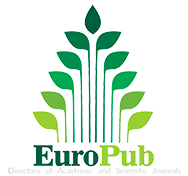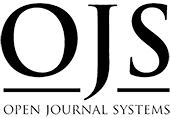Implementation of active methodologies in Mexican higher education: Analysis from teachers’ perspective
Keywords:
Active learning, Active methodologies, interdisciplinary approach, Higher educationAbstract
Evidence indicates that active learning is the best approach to undergraduate learning. However, more research is required, especially based on classroom observations, in order to verify if decisions made at the meso-curricular design level, are actually being implemented at the micro-curricular design level. This study seek to explore teachers’ implementation of active methodologies in Mexican Higher Education Institutions (IES). For this purpose, a self-administered online questionnaire is used. The sample corresponds to teachers from Mexican public HEIs (n= 33). Results show that this group of teachers has a positive perception on implementing active methodologies, as an alternative to traditional lectures. However, it is suggested to carry out class observations and teacher retraining on how to make active methodologies and evaluation systems tune, in a coherent manner.
References
Campos, E., Silva, L., Tecpan, S. y Zavala, H. (2016). Argumentation during active learning strategies in a SCALE-UP environment. PERC Proceedings. https://repositorio.tec.mx/bitstream/handle/11285/632845/PERC2016_Campos.pdf?sequence=1&isAllowed=y
CEDEFOP (2008). Terminology of European education and training policy: A selection of 100 key terms. European Centre for the Development of Vocational Training. https://rediie.cl/wp-content/uploads/Terminology-of-European-education-and-training-policy.pdf
Güven, Z. Z. (2020). lifelong learning skills in higher education: a case study based on the students’ views. Turquoise International Journal of Educational Research and Social Studies, 2(2), 20-30. https://files.eric.ed.gov/fulltext/ED610205.pdf
Hamed Taherdoost. What Is the Best Response Scale for Survey and Questionnaire Design; Review of Different Lengths of Rating Scale / Attitude Scale / Likert Scale. International Journal of Academic Research in Management (IJARM), Helvetic Editions, 8(1), 2-13. https://hal.archives-ouvertes.fr/hal-02557308/document
Hartikainen, S., Rintala, H., Pylväs, L. y Nokelainen, P. (2020). The Concept of Active Learning and the Measurement of Learning Outcomes: A Review of Research in Engineering Higher Education. Educ. Sci. 9, 276, 1-19. https://files.eric.ed.gov/fulltext/EJ1238190.pdf
Kılıç, M. Y., y Kılıç, M. E. (2022). A study on determining the relationship between teachers' lifelong learning tendencies and their attitudes towards using technology in education. Malaysian Online Journal of Educational Technology, 10(2), 125-140. http://dx.doi.org/10.52380/mojet.2022.10.2.278
Niu, S. X. y Heqing Liu, H. (2021). Strategies and challenges in promoting lifelong learning in higher education – the case of China. UNESCO Institute for Life-Long Learning. https://rediie.cl/wp-content/uploads/Strategies-and-challenges-in-promoting-lifelong-learning-in-higher-education.pdf
Orr, D., Luebcke, M., Schmidt, J. P., Ebner, M., Wannemacher, K., Ebner, M. y Dohmen, D. (2020). Higher Education Landscape 2030: A Trend Analysis Based on the AHEAD International Horizon Scanning. Springer Open. https://rediie.cl/wp-content/uploads/Higher-Education-Landscape-2030.pdf
Vera, F. (2022). La perspectiva de docentes sobre la infusión de la sostenibilidad en el currículo de la educación superior. Revista Electrónica Transformar, 3(2), 17-37. https://revistatransformar.cl/index.php/transformar/article/view/57
Vera, F. (2009). El autoestudio como componente esencial del currículum: un análisis comparativo entre el sistema universitario Chino y chileno. Nodo Educativo. UTEM Virtual. http://www.utemvirtual.cl/nodoeducativo/wpcontent/uploads/2009/04/art_fvera_3.pdf
Vera, F. (2016). Transformación curricular. El caso de una universidad privada chilena. Revista Iberoamericana de Educación, 72(2), 23-46. https://rieoei.org/RIE/article/view/99/185
Vera, F. (2018). Tecnología digital para la inclusión social: Experiencia en la Universidad de Aconcagua. IKASNABAR, País Vasco/Euskal Herriko Unibertsitatea. https://rediie.cl/wp-content/uploads/UCPDF201218-43-53.pdf
Vera, F. (2020). Developing soft skills in undergraduate students: A case at a Chilean private university. Revista Electrónica Transformar, 1(1), 57-67. https://revistatransformar.cl/index.php/transformar/article/view/12
Vera, F. (2021). Preguntas dicotómicas. Glosario REDIIE. https://rediie.cl/preguntas-dicotomicas-si-no/
Vera, F. (2021a). Implementación de metodologías activas desde un enfoque transdisciplinar: El caso de un colegio particular subvencionado chileno. Revista Electrónica Transformar, 2(4), 20-34. https://revistatransformar.cl/index.php/transformar/article/view/41
Vera, F. (2021b). Aprendizaje de inglés como lengua extranjera (L2) en estudiantes de grado: Estudio etnográfico en una universidad china. Revista Electrónica Transformar, 2(3), 30-43. https://revistatransformar.cl/index.php/transformar/article/view/32
Vera, F. (2021c). Diseño descriptivo. Glosario REDIIE. https://rediie.cl/estudio-descriptivo/
Vera, F. (2021). Preguntas dicotómicas Sí/No. Glosario REDIIE. https://rediie.cl/preguntas-dicotomicas-si-no/
Vera, F. (2022). Promoting teachers’ innovation by using the One-Minute Paper. Revista Electrónica Transformar, 3(1), 51–63. https://revistatransformar.cl/index.php/transformar/article/view/52
Vera, F. y García-Martínez, S. (2022). Creencias y prácticas de docentes universitarios respecto a la integración de tecnología digital para el desarrollo de competencias genéricas. Revista Colombiana de Educación, 1(84), 1-16. https://doi.org/10.17227/rce.num84-11582








